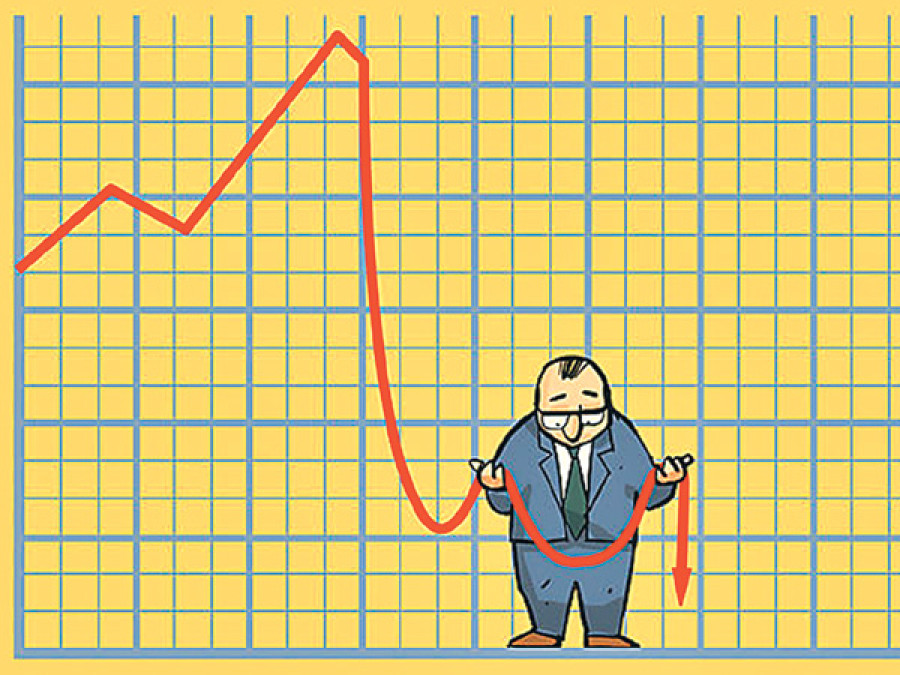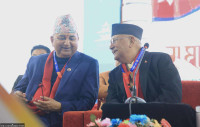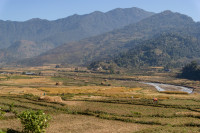Opinion
A downward trend
People like you and me who try to ape the lifestyle of developed countries are also to blame for the present economic situation
Shyam Kc
The downward leap of the country’s economy for the past sometime is a matter of deep worry for all Nepalis, for it means not merely the rise in the poverty of the people but also the attendant difficulties in leading a decent and corruption-free life. According to official statistical data carried by the media this week, the economic growth has plummeted to 0.77 percent. Since our officials tend to be more positive than warranted, and driven by political guidelines, the real growth rate
may indeed have been negative. Does it surprise anyone that the growth rate of our real Gross Domestic Product (GDP) has crossed the five percent mark only twice in this century—6.1 percent in 2008 and 5.4 percent in 2014? Our highest GDP growth rate in recent times was in 1984 when it grew by 9.7 percent, which is still smaller than what was achieved by some other developing countries. But the present 0.77 percent growth rate is better than the 0.16 percent recorded in 2002.
In the 1970s and 1980s, a medical consultant, whenever I met him, recited the line, “A nation with a downward trend can never look afar.” I never knew whether the line was original or was borrowed. But what he said holds as true today as it did then. Political chaos without a focus on the needs of the people and on the minimum developmental requirements can only lead the country towards political, economic and social disasters. Political brick batting should come only after the needs of the people and the country are met. Unfortunately, just the contrary is what has been happening. The needless squabbling among political parties cannot but project a negative image of them among the people at home and a negative picture of the country outside.
Foreign-sponsored moves
The prime task of any state is to protect its citizens and to work for their welfare and well-being. But the state machinery was diverted towards achieving political goals when it should have been directed towards meeting the needs of the people, particularly those ravaged by the April earthquake. If heaven can wait, so could the constitution whose ultimate purpose is to serve the people and help them achieve economic prosperity. After the constitution’s promulgation, even the parties that voted for it find it expedient to walk the other way without considering what impact such an attitude will have on the ordinary people, who see (rightly or wrongly) the political parties’ moves as nothing but strategies to grab power. Some even allege that the recent political moves by various actors are foreign-sponsored. The fact that the then Prime Minister Sushil Koirala had promised to step down and pave the way for a new government once a new constitution was approved by the Constituent Assembly but later inexplicably decided to contest for the high office seems to add much weight to the foreign interference theory.
It is only natural for such political instability and manoeuvrings to reflect directly on the country’s economy. True, last year’s disaster and the resultant destruction of life, property and infrastructure as well as the undeclared—but still real—blockade impacted the country’s economy negatively. But it is worth mentioning that no government of the post-2000 era seems to have fully concentrated on the much-needed developmental activities. The excuse earlier, of course, was the preoccupation with the Maoist insurgency that not only killed over 16,000 Nepalis but also displaced hundreds of thousands of others, hampering the country’s economic growth. No wonder even the official data showed the GDP growth rate in 2002 to be only 0.16 percent.
Simple and beautiful life
The country is heavily dependent on agriculture, which is said to be the sector where over 75 percent of the people are engaged. Yet successive governments did not deem it fit to do enough for this sector, such as providing irrigation facilities. Some of us recall the time when we exported rice; as a result, the value of the Nepali rupee then was much higher than it is today, as we have to import huge amounts of food grains to feed an ever-rising population. The governments during the Panchayat period and in the democratic era did little to attract domestic and foreign investments in the industrial sector, which would have boosted the economy. The industrial sector also has the ability to prevent the exodus of youths to foreign countries in search of jobs.
Also to blame for the present economic situation are people like you and me who live in urban areas and who try to ape the lifestyle of developed countries, without realising that such a lifestyle proves to be a drain on the country’s economy as we have to import almost everything to sustain it. Cars and motorbikes, as well as the fuel to run them, have to be imported. Austerity has not been a strong
point in people’s lives. Even the government, which should know better, indulges in excesses, without appearing to know the need for austerity in such an economic situation. If the downward trend of the nation is to be prevented and reversed, then we the people have to lead a simple but beautiful life. But it is primarily the responsibility of the government of the day to set an example in this regard and
of the political parties to unite and work together when the national interest is at stake.




 17.12°C Kathmandu
17.12°C Kathmandu










